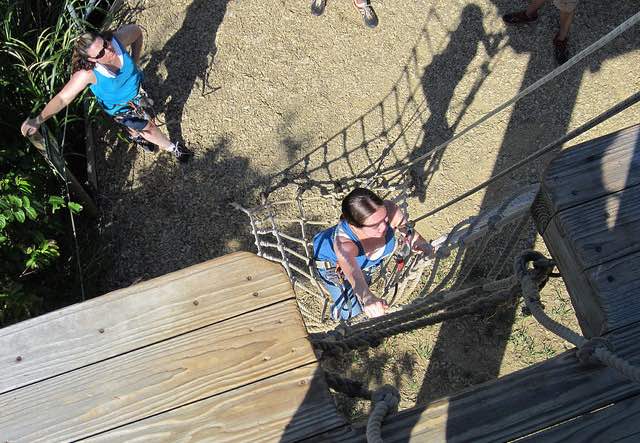This exciting new study finds that outdoor challenge-based interventions may be effective in reducing the overall severity of Autism Spectrum Disorder (ASD) symptoms.
The research found significant improvements in the social cognition, social motivation, and autistic mannerisms of the young subjects after outdoor adventure activities and describes a new path for enhancing the social and communication skills of children with ASD.
RELATED: Autism-Friendly Clothing Dumps Zips, Buttons and Tags, Offers GPS
51 children from seven special-education kindergartens in Tel Aviv participated in the study, which was conducted in collaboration with ALUT, the National Israeli Association for Children with Autism, and ETGARIM, a nonprofit that sponsors outdoor activities for disabled people. The children, aged 3-7, all followed the same educational protocols, but the intervention group, comprising 30 students, also participated in an outdoor adventure program (OAP).
The intervention group underwent 13 weekly sessions of challenge-based activities with instructors. Each 30-minute session took place in urban parks near the participants’ kindergartens and kicked off with a song. Afterward, the children used the outdoor fitness equipment, moving from one to another throughout the session. The activities required the children to communicate with the instructors and with their peers, to ask for assistance or be noticed, for example.
Prior to the adventure program, the children’s cognitive and adaptive skills were assessed by the kindergarten instructors using the Social Responsiveness Scale (SRS), a questionnaire that assesses autism severity in different domains, and the Teachers’ Perceived Future Capabilities questionnaire. The information was obtained prior to and after completing the program.
CHECK OUT: Toys R Us Open Stores For ‘Quiet Hour’ to Accommodate Kids With Autism
“Our study shows that outdoor adventure activities benefit children with autism and improve their social communication skills,” says Professor Ditza Antebi-Zachor. “We suggest including these fun activities in special education kindergartens and in communication classrooms at school in addition to traditional treatments. Parents of children with ASD can also enroll their kids in afterschool activities based on the principles of our research. It will allow the children to have fun during their leisure time while improving their communication skills.”
According to Zachor, future studies should examine the contribution of this type of intervention over longer periods of time and encourage other researchers to explore new treatments that improve social communication skills in an entertaining, engaging way.
(Source: American Friends of Tel Aviv University)
Click To Share The News With Your Friends (Photo by Nelo Hotsuma, CC)




















